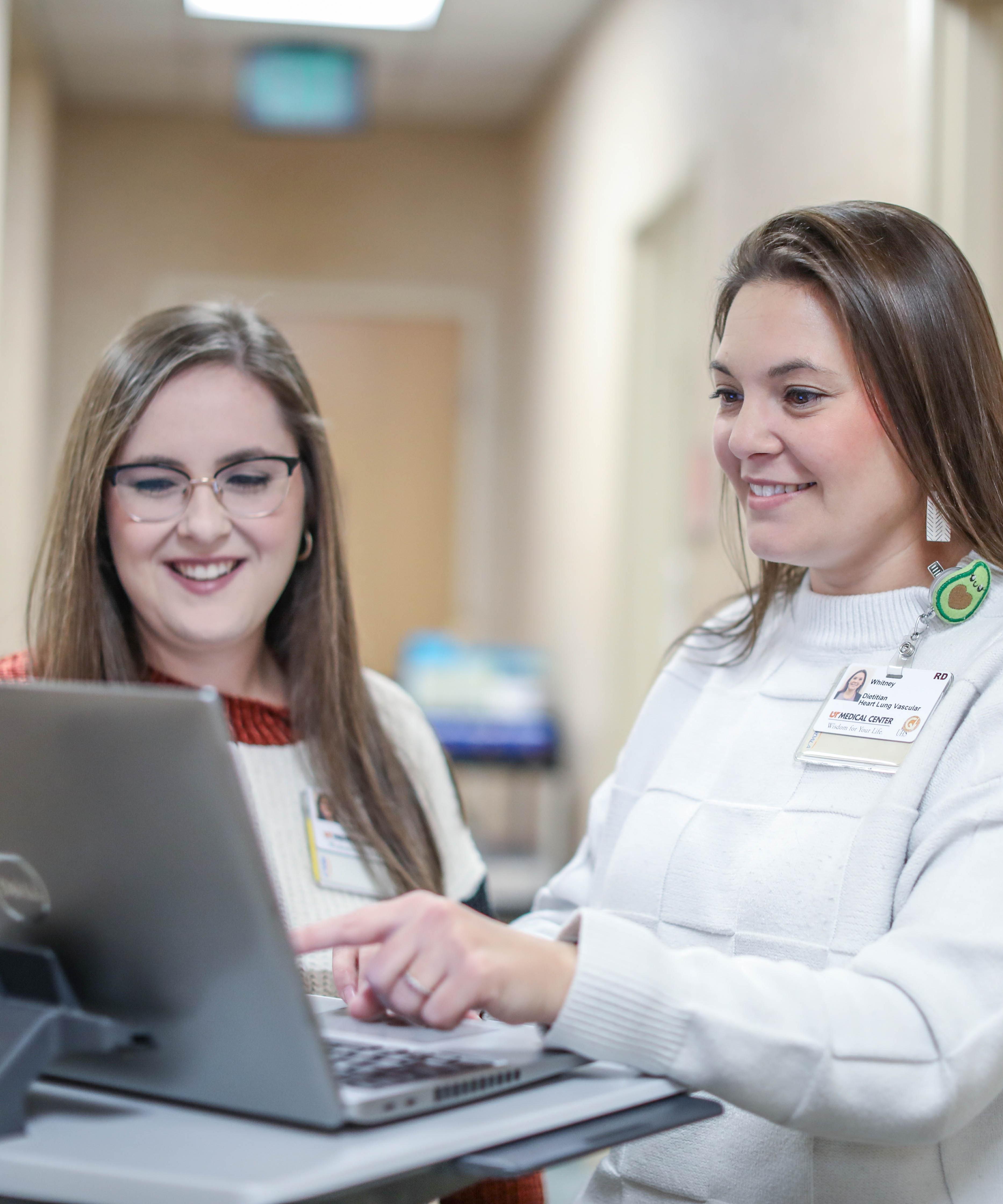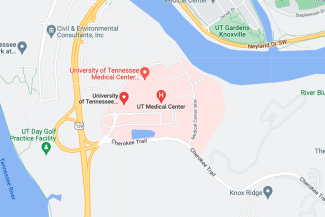Part of the Heart Lung Vascular Institute
Adult Cystic Fibrosis Center
• Main Campus
Address
1940 Alcoa Highway
Knoxville, TN 37920
Phone
865-305-5888

Part of the Heart Lung Vascular Institute
• Main Campus
Address
1940 Alcoa Highway
Knoxville, TN 37920
Phone
865-305-5888

The center is held weekly in the University Pulmonary and Critical Care offices of the the Heart Lung Vascular Institute (E-210). A multidisciplinary team made up of the following providers collaborates to ensure adult patients receive quality, comprehensive care:
Cystic fibrosis is an inherited disease that causes thick, sticky mucus to build up in the lungs and digestive tract. It is one of the most common chronic lung diseases in children and young adults, and may result in early death.
Cystic fibrosis (CF) is caused by a defective gene which causes the body to produce abnormally thick and sticky fluid, called mucus. This mucus builds up in the breathing passages of the lungs and in the pancreas, the organ that helps to break down and absorb food.
Millions of Americans carry the defective CF gene, but do not have any symptoms. That’s because a person with CF must inherit two defective CF genes — one from each parent. An estimated 1 in 29 Caucasian Americans have the CF gene. The disease is the most common, deadly, inherited disorder affecting Caucasians in the United States. It’s more common among those of Northern or Central European descent. Most children with CF are diagnosed by age 2. A small number, however, are not diagnosed until age 18 or older. These patients usually have a milder form of the disease.
A blood test is available to help detect CF. The test looks for variations in a gene known to cause the disease. Other tests use to diagnose CF include:
Other tests that identify problems that can be related to cystic fibrosis include:
Call your healthcare provider if someone has symptoms of cystic fibrosis. If you do not have a doctor, allow us to help you find one. Call your health care provider if a person with cystic fibrosis develops new symptoms or if symptoms get worse, particularly severe breathing difficulty or coughing up blood.
Call your health care provider if you experience:
Address
1940 Alcoa Highway
Knoxville,
TN
37920
Where we are
Medical Building E, Suite 210
parking
Garage 4, Garage G

The Heart Lung Vascular Institute at the University of Tennessee Medical Center developed the Adult Cystic Fibrosis Center in conjunction with the pediatric program of East Tennessee Children’s Hospital to provide quality, multidisciplinary care for adult patients with cystic fibrosis.